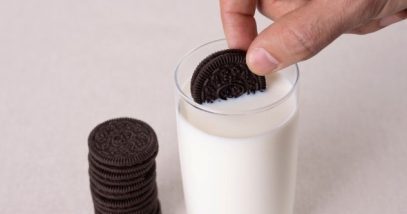 Movies and TV
Movies and TV  Movies and TV
Movies and TV  History
History 10 Dirty Government Secrets Revealed by Declassified Files
 Weird Stuff
Weird Stuff 10 Wacky Conspiracy Theories You Will Need to Sit Down For
 Movies and TV
Movies and TV 10 Weird Ways That TV Shows Were Censored
 Our World
Our World 10 Places with Geological Features That Shouldn’t Exist
 Crime
Crime 10 Dark Details of the “Bodies in the Barrels” Murders
 Animals
Animals The Animal Kingdom’s 10 Greatest Dance Moves
 Movies and TV
Movies and TV 10 Box Office Bombs That We Should Have Predicted in 2025
 History
History 10 Extreme Laws That Tried to Engineer Society
 History
History 10 “Modern” Problems with Surprising Historical Analogs
 Movies and TV
Movies and TV 10 Movie Adaptations That Ruined Everything for Some Fans
 History
History 10 Dirty Government Secrets Revealed by Declassified Files
 Weird Stuff
Weird Stuff 10 Wacky Conspiracy Theories You Will Need to Sit Down For
Who's Behind Listverse?

Jamie Frater
Head Editor
Jamie founded Listverse due to an insatiable desire to share fascinating, obscure, and bizarre facts. He has been a guest speaker on numerous national radio and television stations and is a five time published author.
More About Us Movies and TV
Movies and TV 10 Weird Ways That TV Shows Were Censored
 Our World
Our World 10 Places with Geological Features That Shouldn’t Exist
 Crime
Crime 10 Dark Details of the “Bodies in the Barrels” Murders
 Animals
Animals The Animal Kingdom’s 10 Greatest Dance Moves
 Movies and TV
Movies and TV 10 Box Office Bombs That We Should Have Predicted in 2025
 History
History 10 Extreme Laws That Tried to Engineer Society
 History
History 10 “Modern” Problems with Surprising Historical Analogs
Facts
Random List
 Facts
Facts Ten Unexpectedly Fascinating Facts About Rain
 Facts
Facts 10 U.S. Government Contingency Plans for the Unthinkable
 Facts
Facts 10 Unusual Facts About Calories
 Facts
Facts Ten Extraordinary Facts About Pungent Smells
 Facts
Facts 10 Cool Palindromes You Didn’t Know Existed
 Facts
Facts 10 Facts About Babies That Will Break Your Reality
 Facts
Facts 10 Incredibly Specific Oreo Facts You’ll Think About at 2 A.M.
 Facts
Facts Ten FBI Facts You Won’t Believe Are True
 Facts
Facts 10 Interesting and Bizarre Facts About Vending Machines
 Facts
Facts 10 Terrifying Facts You Never Wanted to Know
 Facts
Facts Ten Stomach-Turning Facts That We Wish Weren’t True
Editor’s Picks
 Movies and TV
Movies and TV 10 Psychiatric Diagnoses Of Horror Villains And Their Victims
 Movies and TV
Movies and TV 10 Greatest Movie MacGuffins Of All Time
 Movies and TV
Movies and TV 10 Iconic Movie And TV Restaurants That Are Actually Real
 Movies and TV
Movies and TV